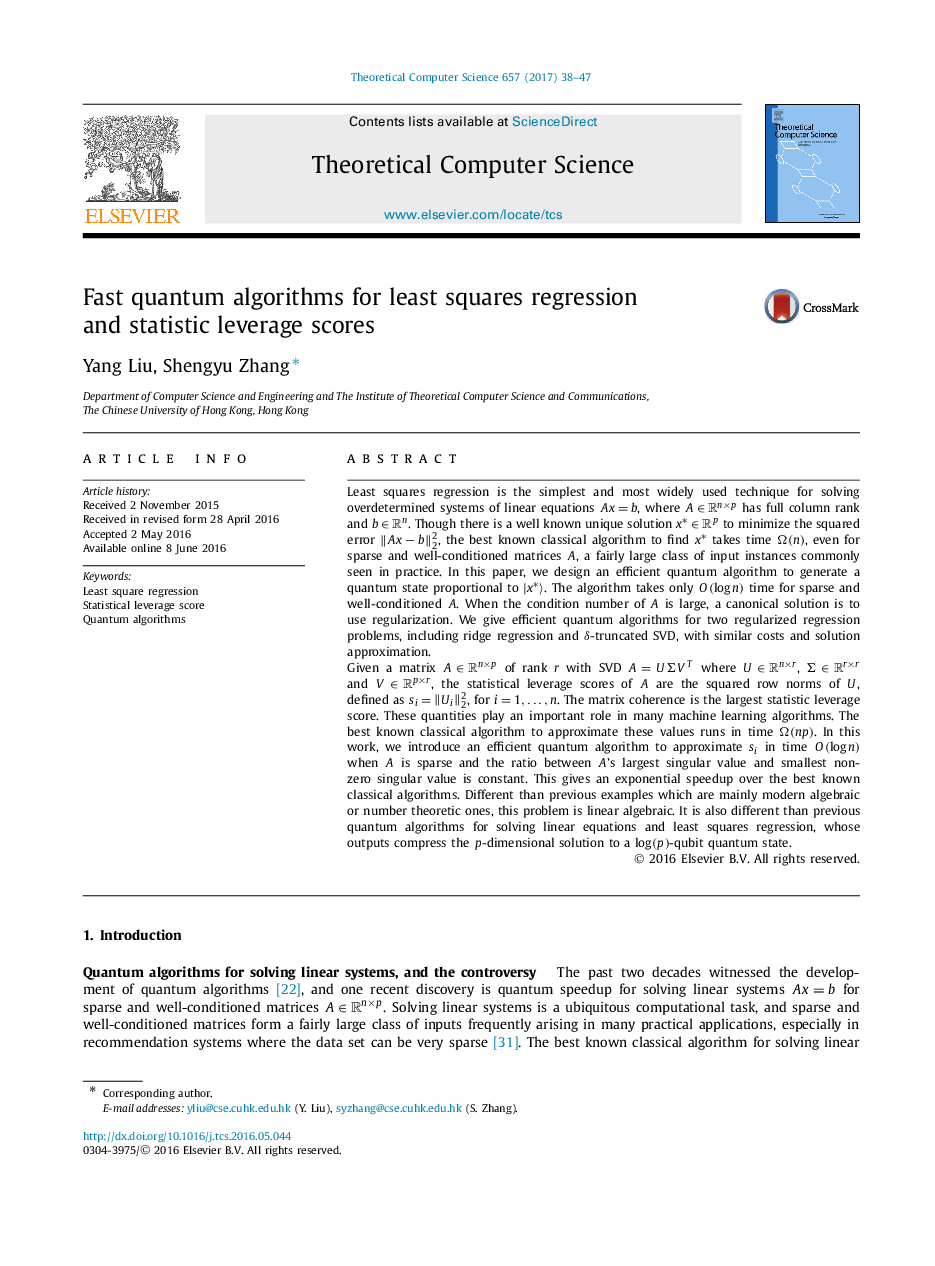| کد مقاله | کد نشریه | سال انتشار | مقاله انگلیسی | نسخه تمام متن |
|---|---|---|---|---|
| 4952323 | 1364440 | 2017 | 10 صفحه PDF | دانلود رایگان |
Least squares regression is the simplest and most widely used technique for solving overdetermined systems of linear equations Ax=b, where AâRnÃp has full column rank and bâRn. Though there is a well known unique solution xââRp to minimize the squared error âAxâbâ22, the best known classical algorithm to find xâ takes time Ω(n), even for sparse and well-conditioned matrices A, a fairly large class of input instances commonly seen in practice. In this paper, we design an efficient quantum algorithm to generate a quantum state proportional to |xâã. The algorithm takes only O(logâ¡n) time for sparse and well-conditioned A. When the condition number of A is large, a canonical solution is to use regularization. We give efficient quantum algorithms for two regularized regression problems, including ridge regression and δ-truncated SVD, with similar costs and solution approximation.Given a matrix AâRnÃp of rank r with SVD A=UΣVT where UâRnÃr, ΣâRrÃr and VâRpÃr, the statistical leverage scores of A are the squared row norms of U, defined as si=âUiâ22, for i=1,â¦,n. The matrix coherence is the largest statistic leverage score. These quantities play an important role in many machine learning algorithms. The best known classical algorithm to approximate these values runs in time Ω(np). In this work, we introduce an efficient quantum algorithm to approximate si in time O(logâ¡n) when A is sparse and the ratio between A's largest singular value and smallest non-zero singular value is constant. This gives an exponential speedup over the best known classical algorithms. Different than previous examples which are mainly modern algebraic or number theoretic ones, this problem is linear algebraic. It is also different than previous quantum algorithms for solving linear equations and least squares regression, whose outputs compress the p-dimensional solution to a logâ¡(p)-qubit quantum state.
Journal: Theoretical Computer Science - Volume 657, Part A, 2 January 2017, Pages 38-47
